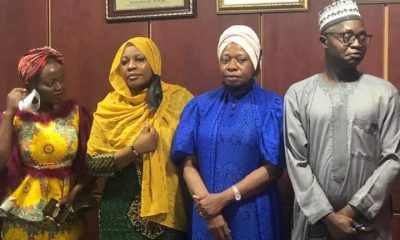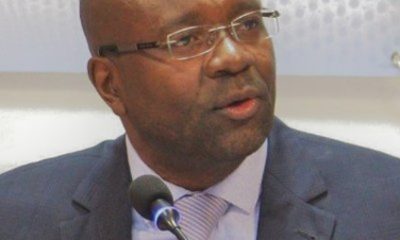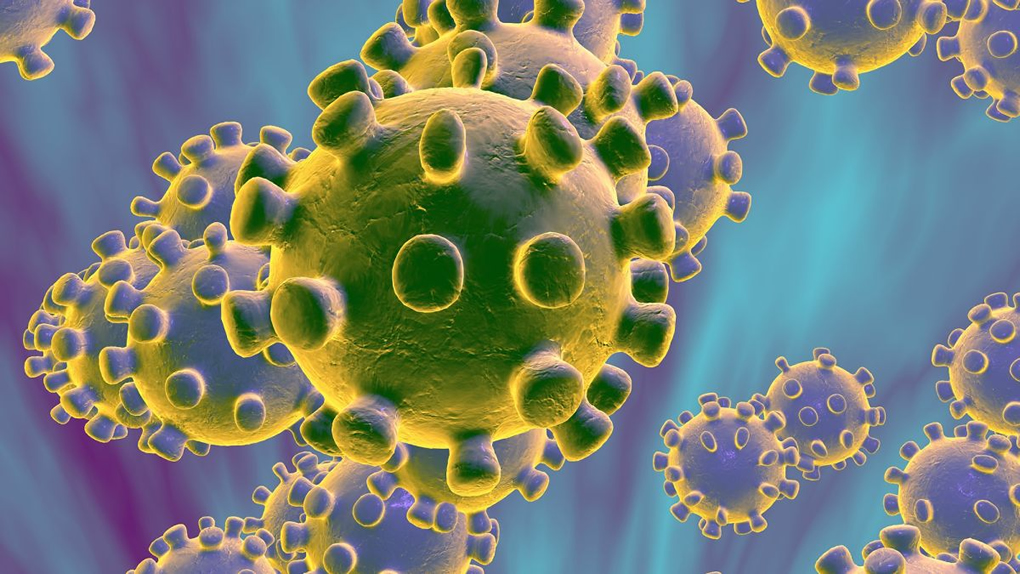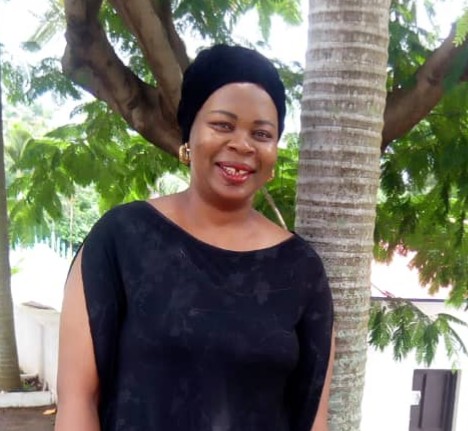News
Post COVID-19 era: 7 reasons why N’Assembly must pass local content Bill
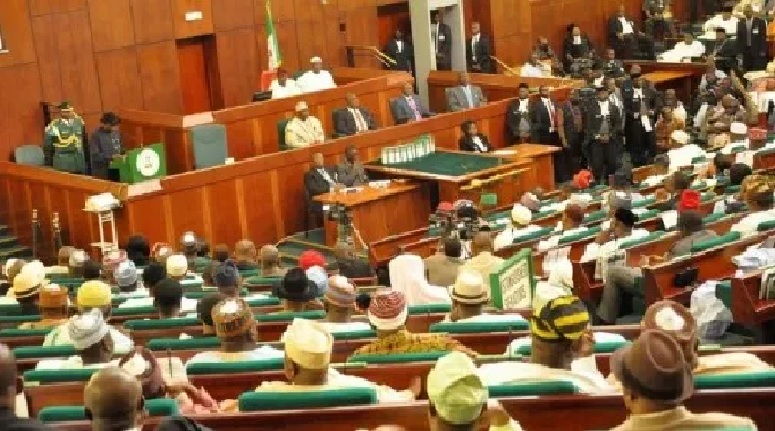
By Yemi Itodo
As the world prepares for measures in boosting economies after the ease of global lockdown, the Nigerian National Assembly, is once again, saddled with the responsibility of coming up with legislative piece and actions that could help rejuvenate the nation’s economy and help Nigerians overcome post-Corona virus hardship. googlesyndication.com/pagead/js/adsbygoogle.js">
One swift step that must be taken by both Houses of the National Assembly, is to give serious attention to, and speedily pass the local content enforcement Bill.
The Bill which is known as, the Nigerian Local Content Development and Enforcement Bill 2020, passed second reading on the floor of the House of Representatives, on Tuesday, 19th May, 2020.
The Bill is being sponsored by the Speaker, House of Representatives, Rt. Hon. Femi Gbajabiamila; Chairman, House Committee on Nigerian Content Development and Monitoring, Rep. Legor Idagbo and 7 others.
Amongst other things, the Bill seeks to expand the scope of local content in the extant NOGICD Act, thereby putting the Nigerian economy in the hands of Nigerians, creating jobs and enhancing the value of indigenous businesses in the post Covid-19 era.
Spokesman of the House, Rep. Benjamin Kalu, while analysing the general principles of the Bill in a statement on Monday, said, the idea of local content Bill or policy was to encourage local participation, ownership and control of certain key sectors by indigenous businesses.
“This is vital to preserving Nigeria’s socioeconomic independence and enhancing the ability of indigenous businesses to exploit local opportunities, while staying globally competitive”, Kalu said.
Stressing further, the Spokesman said, “so far, the key local content legislation in Nigeria is the 10-year old Nigerian Oil and Gas Industry Content Development Act 2010 (NOGICDA), which established the Nigerian Content Development and Monitoring Board (NCDMB) but is limited to the oil sector.
“Also notable, are the President’s efforts to extend local content compliance to the public procurement practices of federal parastatals vide his Executive Orders 003 and 005.
“However, as we celebrate the Africa Day (May 25), a day commemorating Africa’s independence, liberation and socioeconomic freedom from foreign dominion and exploitation, and in the light of the current COVID-19 induced global economic position which has forced countries to look inwards for economic growth and sustainability, it has become imperative to extend local content policy beyond the Petroleum Industry to other critical sectors like, ICT, Manufacturing, Agriculture, Power, Solid Minerals, Construction, Health, etc, through comprehensive legislation”.
THE SOCIO-ECONOMIC BENEFITS OF THE BILL IN NIGERIA’S POST COVID-19 ERA:
- The Bill, when passed and assented to, will promote local manufacturing and economic diversification with focus on ICT, Agriculture, Solid Minerals, Hydrocarbon Refining and Power.
It provides for incentives to encourage local processing of hydrocarbon resources, export of processed minerals and agricultural commodities, local manufacturing of equipment, machinery, spares, chemicals, ICT hardwares, development of softwares and others.
The Local Content Bill also provides for standardisation of locally made goods and locally sourced raw materials to make them competitive in the international market.
- The Bill makes it mandatory for Nigerian made goods and services in all public procurements; Nigerian content philosophy as a key requirement in all public sector procurements; provides for creation of local content departments in MDAs and provides requirement for Nigerian Content Plan (NCP) on major projects (above N100m) outlining minimum Nigerian Content thresholds for materials, labour and services required on the project.
It also strengthens Nigerian content requirements in solicitation of bids and requires Nigerian content compliance certificate as a pre-condition for contract awards; while recommending the creation of Nigerian Content Committee (NCC), to develop economy-wide local content policy.
- Creation of a robust R&D ecosystem to drive home grown technology development; promoting collaborations between Research institutions, product developers and end users of Research; as well as provision to incentives funding of research by public and private sector entities, is another green side of the Bill that would help develop the Nigerian system.
- In job creation drive to address unemployment, the Bill seeks to give first consideration to Nigerians with requisite skills in all public funded projects.
The Bill also provides for creation of national database of available skills amongst the Nigerian locals and requirements for approval and utilisation of expatriates will only role where there is immediate skills shortage.
- Local Content Enforcement Bill will address capacity building to develop resilient local supply chain; Provision for targeted sector-specific capacity building programmes and requirement to close capacity gaps in education, infrastructure, facilities and vendor development on the back of projects.
- Sustainable funding for local content is another clause in the Bill that will help promote and grow the Nigerian economy in Post COVID-19 era.
To achieve this, the Bill provides for creation of a Nigerian Content Trust Fund (NCTF), dedicated to implementing projects and programmes connected to developing local content. Application of the Fund to develop SMEs through low interest project-based financing schemes is also provided for in the Bill.
- The enactment of the Nigerian Local Content Development and Enforcement Bill will strengthen executive-legislature synergy and oversight on local content administration in key sectors of the economy.
It will also provide necessary legislative backbone for implementation of key initiatives that will evolve from the Presidential Economic Sustainability Committee as well as other policy actions by the Executive aimed at repositioning the Nigerian economy in the post COVID-19 era.
As the House of Representatives resumes plenary on Tuesday, 2nd June, 2020, it is instructive to consider further legislative actions for the speedy passage of the all-important Nigerian Local Content Development and Enforcement Bill 2020.
The Nigerian Senate should also, as a matter of urgent national importance, consider the concurrence of the Bill when passed by the lower chamber, for the immediate assent of President Muhammad Buhari, for the good of our economy and the citizenry.
Author Profile
Latest entries
 InterviewsJuly 22, 2023Why I seek Urgent Intervention on Karim and Wurkin Ethnic Crisis – Hon Lauya
InterviewsJuly 22, 2023Why I seek Urgent Intervention on Karim and Wurkin Ethnic Crisis – Hon Lauya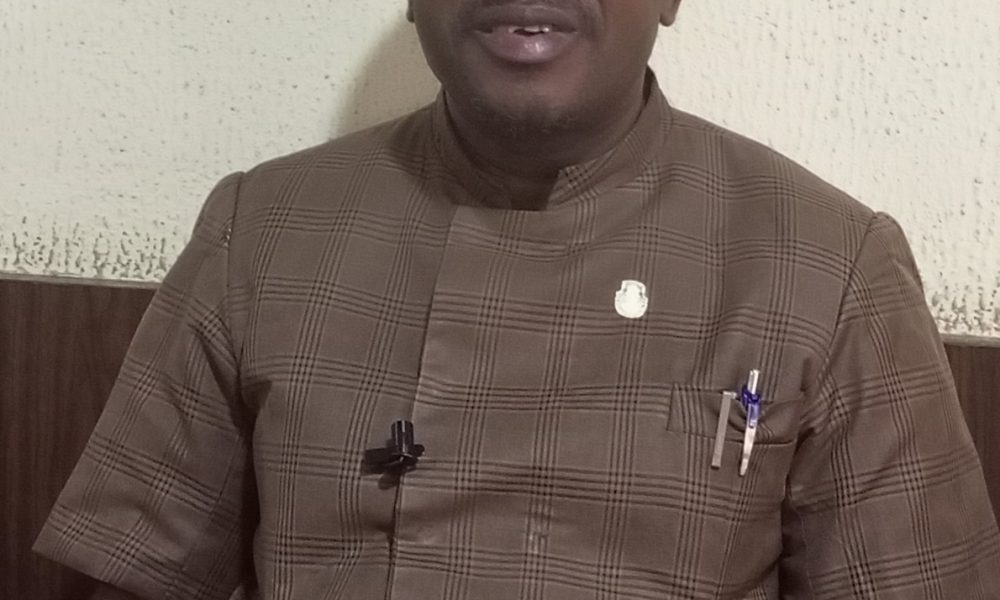 EducationJune 26, 2023Why I Support Fuel Subsidy Removal, How State Police Can Work – University Don
EducationJune 26, 2023Why I Support Fuel Subsidy Removal, How State Police Can Work – University Don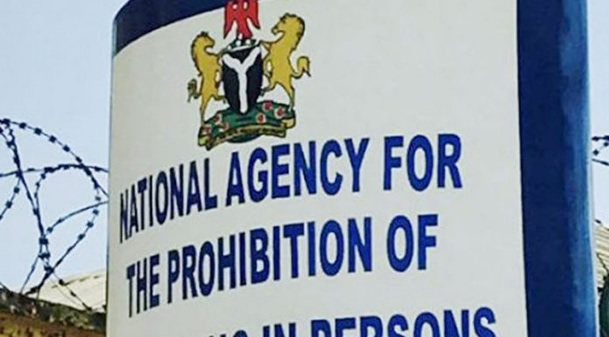 NewsSeptember 2, 2022Regulations 2019: NAPTIP Extends 60 Days Ultimatum Issued To Private Shelters And Rehabilitation Homes
NewsSeptember 2, 2022Regulations 2019: NAPTIP Extends 60 Days Ultimatum Issued To Private Shelters And Rehabilitation Homes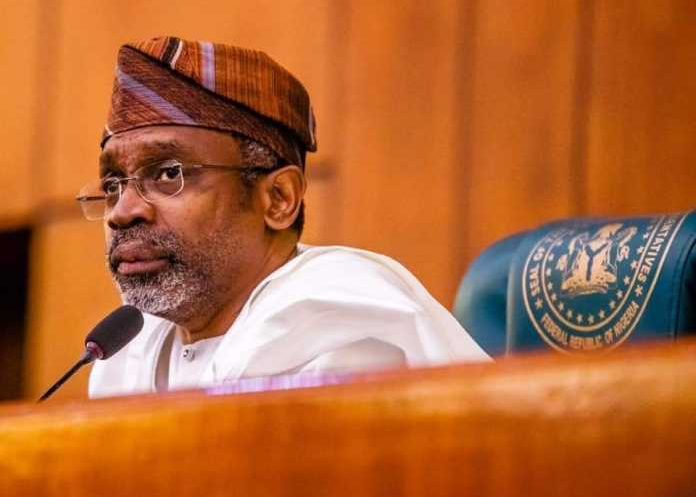 NewsJune 26, 2022Hon Buba Felicitates with Speaker Gbajabiamila at 60
NewsJune 26, 2022Hon Buba Felicitates with Speaker Gbajabiamila at 60
News
Gov Ododo Swears in Newly Elected Local Government Chairmen
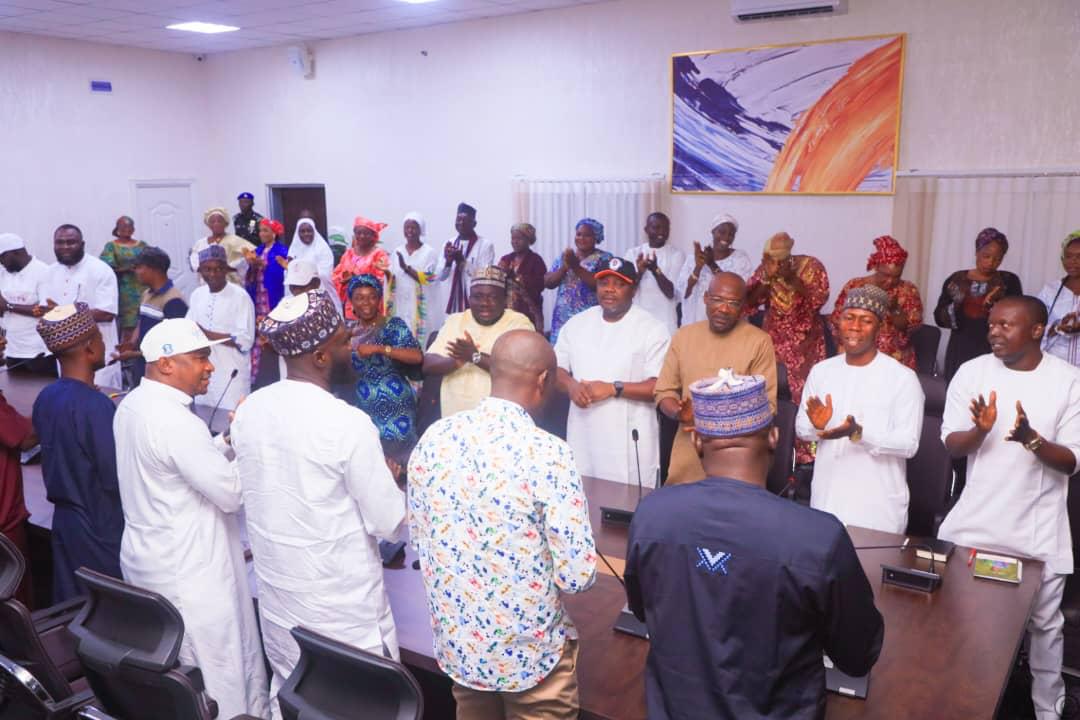
By Abah Benjamin Eneojoh
In a grand ceremony held at the Banquet Hall, Government House, Lokoja today October 21th, 2024, the newly elected Local Government Chairmen were sworn into office. This followed the All Progressives Congress’s (APC) historic sweep in the October 19th, 2024, Local Government polls, where the party won all 21 Local Government Areas.
com/pagead/js/adsbygoogle.js">
The Executive Governor of Kogi State, His Excellency Alh Ahmed Usman Ododo presided over the swearing-in ceremony.
the following were the eleected chairmen and vice-chairman
1. Adavi.
Rasheed Okatengwu Chairman,
Hawawu Aanazuo Vice Chairman
2. Ajaokuta –
Haruna Aliyu Chairman,
Zainab Salihu Vice Chairman
3. Ankpa –
Adamu Yahaya Chairman
Halimat Imam Vice Chairman
4. Bassa –
Adama Theophilus Daruwana Chairman,
Aisha Aliyu Vice Chairman
5. Dekina –
John Urah Chairman,
Rashida Abdullahi Vice Chairman
6. Ibaji –
Emmanuel Onuche Chairman
Victoria Okolo Vice Chairman
7. Idah –
Alfa Halilu Chairman,
Nafisetu Oseni Vice Chairman
8. Igalamela/Odolu –
Cosmos Atabor Chairman,
Khadijat Muhammad Vice Chairman
9. Ijumu –
Haruna Ibrahim Chairman,
Olumiyiwa Tunde Vice Chairman
10. Kabba/Bunu
Zacheaus Dare Chairman,
Bosede Olumeyan Vice Chairman
11. Kogi – Musa Abdulmalik Chairman,
Rabiyat Yusuf Adaam Vice Chairman
12. Lokoja –
Abdullahi Adamu Chairman,
Patricia Balogun Vice Chairman
13. MopaMuro –
Ademola Bello Chairman,
Dalumo Joy Dada Vice Chairman
14. Ofu –
Musa Muhammed Lawal Chairman,
Joy Ojali Amaga Vice Chairman
15. Ogori/Magongo
Rosemary Ohiezuchah Chairman,
Williams Alao Vice Chairman
16. Okehi –
Amoka Monday Chairman,
Halimat Abdulwahab Vice Chairman
17. Okene –
Enesi Ahmed Nuhu Chairman,
Mabel Ovaiozao Vice Chairman
18. Olomaboro –
Ameh Williams Chairman,
Christiana Oguche
Vice Chairman
19. Omalla –
Edibo Mark Chairman,
Adijetu Usman Vice Chairman
20. Yagba East –
Joshua Dare Monday Chairman,
Kudirat Abdulraheem Vice Chairman
21. Yagba West –
Olokun Tosin Chairman,
Roseline Adebayo Mayowa Vice Chairman
In his address, Governor Ododo congratulated the chairmen on their victory and charged them to prioritize the welfare and development of their respective local governments. He emphasized the importance of collaboration and effective governance in driving progress and prosperity in Kogi State.
In his words “Don’t underate the DLG, Treasurer, HOD, Cashier and Civil Servants in your various Local Government Areas. They are our landlords. See them as leaders of this project. See yourselves as their servants and be always close to them.
“Always stay in your Local Government Areas to serve your people, to listen to them so that you can get the right feelings to look at how best you can serve your people.
“God has used former Governor Yahaya Bello to lay this template by bringing this team for the good people of Kogi State. This foundation is what we will continue to build upon.
“We should see ourselves as one family. I don’t want to know what tribe you are from. We should see ourselves as one. We should forget about personal and ethnic interests. Let’s be ready to give back to our people. Do not turn your back against your people. Be fair enough to deliver the dividends of democracy to them.
“We will continue to work as family and will allow the party and assembly to take care of their own affairs and respect them. If we work together as a united family, Kogi State will have no business with poverty. Let’s make Kogi State an industrial hub where investors will want to come and invest in.
“You have been called to serve, it is now left for you to grab and have a legacy where your children will come to as a place of reference”, the Governor said.
The Governor assured them that they would have the autonomy to manage their councils, but emphasized that they would be closely monitored to ensure their actions align with the broader goals and aspirations of his administration, particularly regarding good governance.
He praised President Bola Ahmed Tinubu for his leadership in positively influencing the country, stating, “We are smiling today because of his support and his renewed hope agenda.”
He finally called on the newly appointed LG Chairmen to ensure proper security for their people.
The Kogi State Attorney General, Muiz Yinus Abdullahi, SAN, administered the oath of office to the 21 newly sworn-in Local Government Chairmen.
The newly sworn-in chairmen vowed to tirelessly implement the APC’s campaign promises, prioritizing the well-being and development of their citizens, ensuring that the party’s vision for progress and prosperity becomes a reality.
With the APC’s overwhelming victory and the successful swearing-in ceremony, Kogi State is poised for continued growth and development under the leadership of Governor Ododo and the newly elected Local Government Chairmen.
Author Profile

Latest entries
 NewsOctober 21, 2024Gov Ododo Swears in Newly Elected Local Government Chairmen
NewsOctober 21, 2024Gov Ododo Swears in Newly Elected Local Government Chairmen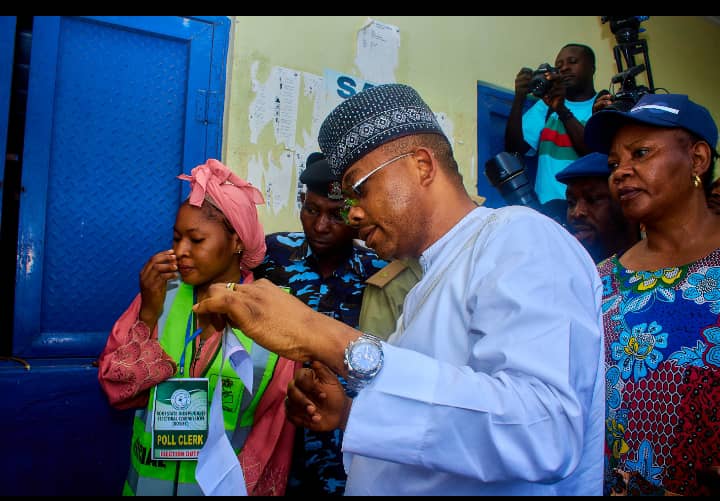 NewsOctober 19, 2024Kogi LG Poll: Ododo Hails Peaceful Process, Commends Electorate.
NewsOctober 19, 2024Kogi LG Poll: Ododo Hails Peaceful Process, Commends Electorate. NewsOctober 19, 2024Kogi LG Polls: Kogi Deputy Gov Casts Vote at Egwubi, Lauds KSIEC for Peaceful, Credible Process
NewsOctober 19, 2024Kogi LG Polls: Kogi Deputy Gov Casts Vote at Egwubi, Lauds KSIEC for Peaceful, Credible Process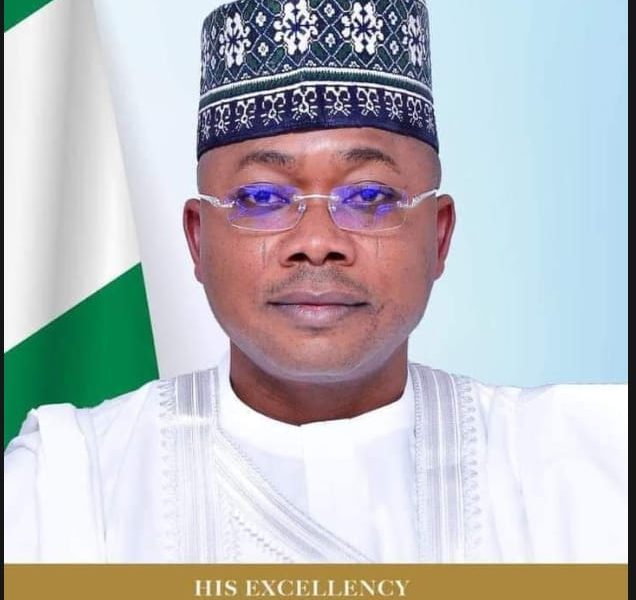 NewsOctober 19, 2024Gov Ododo Mourns with Ebira Nation Over Loss of Hajia Sefinat Omonori
NewsOctober 19, 2024Gov Ododo Mourns with Ebira Nation Over Loss of Hajia Sefinat Omonori
News
Kogi LG Poll: Ododo Hails Peaceful Process, Commends Electorate.

By Abah Benjamin Eneojoh
The Executive Governor of Kogi State, Alhaji Ahmed Usman Ododo, has exercised his civic right in today’s Local Government Election. He casts his vote by 11:22am at Polling Unit 001, RCC School in Opogoro III, Opogro-Odenku Ward, in Okene Local Government Area of Kogi State.
adsbygoogle || []).push({});
Governor Ododo who praised the peaceful conduct of the Local Government election process, also thanked voters for participating impressively.
At the Local Government election venue, Governor Ododo expressed his satisfaction with the peaceful nature of the election, stating, “The election is proceeding peacefully and in an orderly manner,” he said satisfactorily.
He assured that his administration is committed to a free, fair, and credible election. Ododo also appreciated President Bola Ahmed Tinubu’s efforts in promoting credible elections and youth involvement in governance.
Abdusalam Usman, Returning Officer for Upogoro/Odenku Ward iii, reported a smooth voting process starting at 9 am with no hitches. He revealed that the Kogi State Independent Electoral commission was perfectly set for the Poll.
The Chief Servant of Kogi State in company of his chief of Staff, Alh Ali Bello and the Accountant General of Kogi State, Haj Habibat Tijani is committed to the democratic processes of Nigeria
Author Profile

Latest entries
 NewsOctober 21, 2024Gov Ododo Swears in Newly Elected Local Government Chairmen
NewsOctober 21, 2024Gov Ododo Swears in Newly Elected Local Government Chairmen NewsOctober 19, 2024Kogi LG Poll: Ododo Hails Peaceful Process, Commends Electorate.
NewsOctober 19, 2024Kogi LG Poll: Ododo Hails Peaceful Process, Commends Electorate. NewsOctober 19, 2024Kogi LG Polls: Kogi Deputy Gov Casts Vote at Egwubi, Lauds KSIEC for Peaceful, Credible Process
NewsOctober 19, 2024Kogi LG Polls: Kogi Deputy Gov Casts Vote at Egwubi, Lauds KSIEC for Peaceful, Credible Process NewsOctober 19, 2024Gov Ododo Mourns with Ebira Nation Over Loss of Hajia Sefinat Omonori
NewsOctober 19, 2024Gov Ododo Mourns with Ebira Nation Over Loss of Hajia Sefinat Omonori
News
Kogi LG Polls: Kogi Deputy Gov Casts Vote at Egwubi, Lauds KSIEC for Peaceful, Credible Process
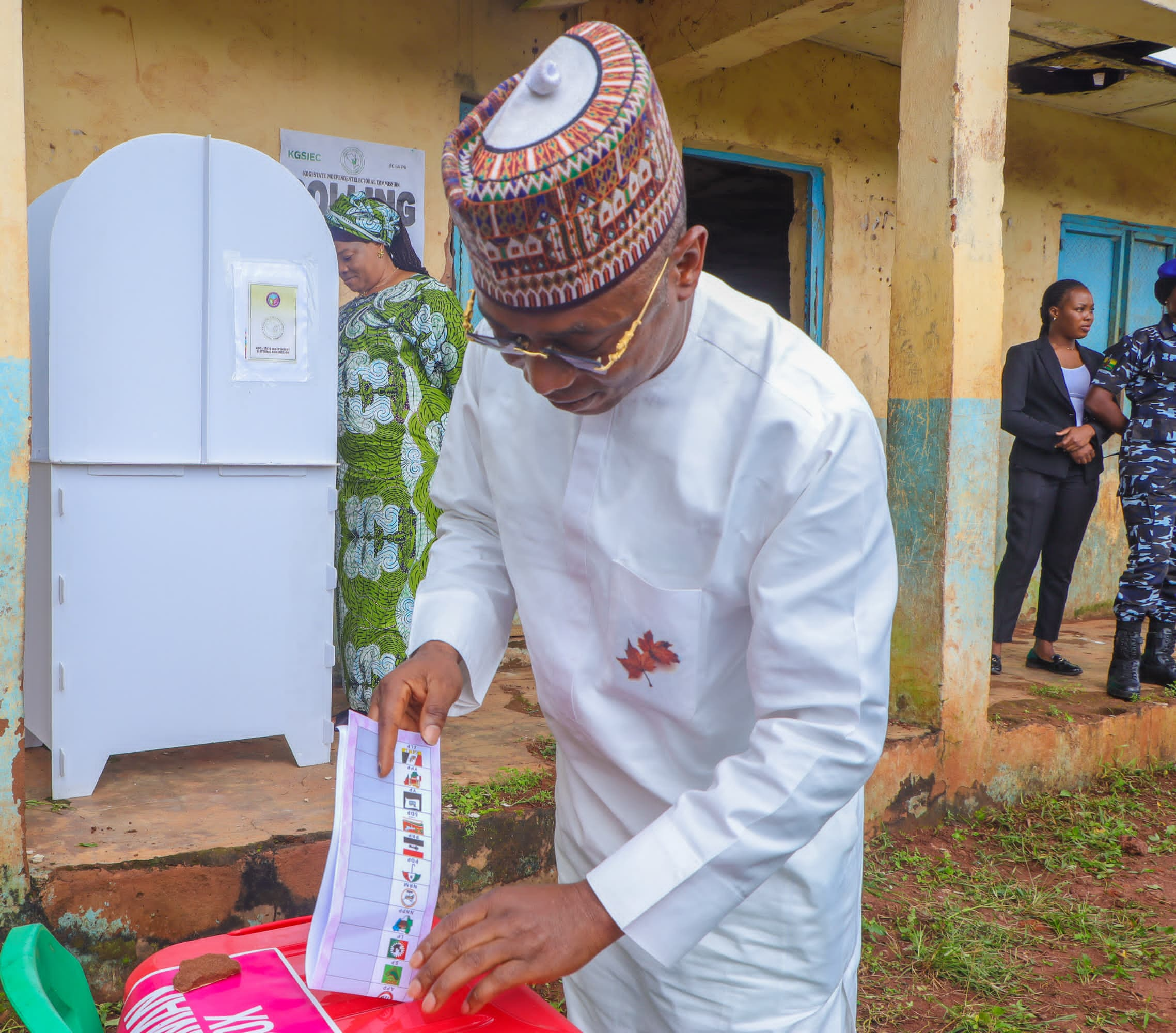
By Abah Benjamin Eneojoh
The Deputy Governor of Kogi State, Comrade Joel Salifu, has commends the Kogi State Independent Electoral Commission for conducting a peaceful and transparent electoral process in the ongoing local government election in the state.
adsbygoogle || []).push({});
googlesyndication.com/pagead/js/adsbygoogle.js">
Addressing news men shortly after exercising his franchise at his polling unit 010 Egwubi, Ofu local government area, Deputy Governor Joel Salifu emphasized that the election would be the most peaceful and credible exercise in the history of the state.
He conveyed that feedback received from party leaders across the 21 local government has indicated that the process is characterized by openness, ease, and transparency, expressing delight at the substantial turnout of voters at the polling stations.
He encouraged voters who have yet to visit their designated polling units to promptly do so in order to cast their ballots for their preferred candidates.
Deputy Governor Joel Salifu expressed optimism that the All Progressives Congress will coast to Victory after the election, stating that the people of the state are happy with the good works of Governor Ahmed Usman Ododo.
Author Profile

Latest entries
 NewsOctober 21, 2024Gov Ododo Swears in Newly Elected Local Government Chairmen
NewsOctober 21, 2024Gov Ododo Swears in Newly Elected Local Government Chairmen NewsOctober 19, 2024Kogi LG Poll: Ododo Hails Peaceful Process, Commends Electorate.
NewsOctober 19, 2024Kogi LG Poll: Ododo Hails Peaceful Process, Commends Electorate. NewsOctober 19, 2024Kogi LG Polls: Kogi Deputy Gov Casts Vote at Egwubi, Lauds KSIEC for Peaceful, Credible Process
NewsOctober 19, 2024Kogi LG Polls: Kogi Deputy Gov Casts Vote at Egwubi, Lauds KSIEC for Peaceful, Credible Process NewsOctober 19, 2024Gov Ododo Mourns with Ebira Nation Over Loss of Hajia Sefinat Omonori
NewsOctober 19, 2024Gov Ododo Mourns with Ebira Nation Over Loss of Hajia Sefinat Omonori



